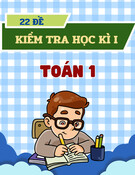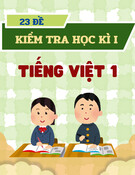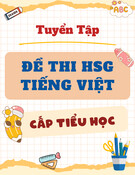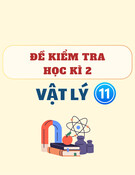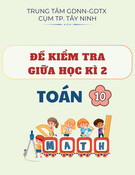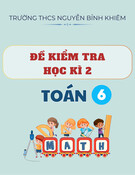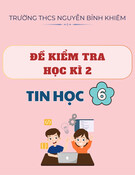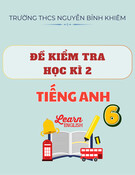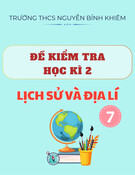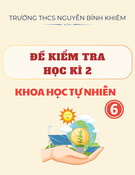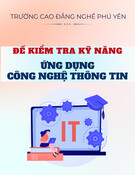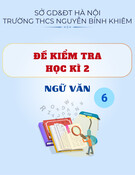
Code 121
SỞ GD & ĐT QUẢNG NAM
TRƯỜNG THPT TỐ HỮU
--------------------
(Đề thi có 4 trang)
CODE: 121
KIỂM TRA GIỮA HỌC KÌ 1
NĂM HỌC 2024 – 2025
MÔN: TIẾNG ANH
Thời gian làm bài: 60 phút
(không kể thời gian phát đề)
Họ và tên học sinh:……………………………………………Số báo danh:……………….
LISTENING: (2.5 pts)
Part 1. Listen to a talk about Marie Curie’s biography and decide if the following statements are
true (T) or false (F). You can listen to the recording TWICE.
Question 1. Marie Curie was the oldest of the five children
A. True B. False
Question 2. In 1891, she moved to France and enrolled herself at the Sorbonne University
A. True B. False
Question 3. She got married on July 26th 1895 and had two daughters
A. True B. False
Question 4. In 1911, Marie won the Nobel Prize in Physics
A. True B. False
Question 5. She died in Pasi Haute Savoie, France on 4 July 1934 at the age of 76.
A. True B. False
Part 2. Listen to a talk about Marie Curie’s biography and choose the correct answer to each of
the following questions. You can listen to the recording TWICE.
Question 6. When did Marie Curie start attending the boarding school of J. Sikosra?
A. in 1867 B. In 1877 C. In 1876 D. In 1883
Question 7. Marie Curie moved to France because __________.
A. she attended a gymnasium for girls.
B. she started her practical scientific training.
C. she pursued education at the Sorbonne University.
D. she wanted to get a PhD’s degree in Chemistry.
Question 8. Which element was discovered by Marie Curie?
A. X-ray B. Uranium C. Noelium D. Polonium
Question 9. What is not mentioned as an achievement of Marie Curie?
A. She received a master’s degree in Physics in 1893.
B. She discovered two new elements for the periodic table.
C. She was the first woman to be awarded two Nobel prizes.
D. She cured cancer and treated injuries for soldiers during World War I.
Question 10. What is true about Marie Curie’s life?
A. She was the youngest of the nine children of her parents.
B. She met Pierre Curie in 1894 and they married one year later.
C. She won two Nobel Prizes in Physics in 1903 and in 1911.
D. She named one of the elements discovered radium after her homeland.
LANGUAGE: ( 2.5 pts)
Part 1:





